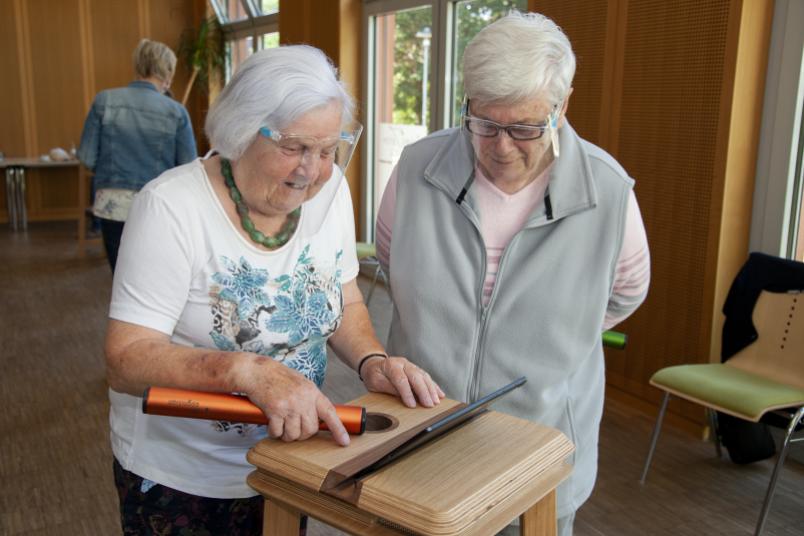
Psychology
New Group Training Tool for the Prevention of Dementia
The system is already in use in retirement homes. Researchers from Bochum have tested how effective it is in a scientific study.
Solving a quiz as a group while moving around the room at the same time – this combination is the basis of a new tool designed to prevent dementia. Researchers developed and evaluated it in the “go4cognition” project with industry partners and brought it to market maturity. Vanessa Lissek and Professor Boris Suchan from Ruhr University Bochum, Germany, and Stefan Orth from the company Ontaris describe how effective the training with the system is in the Journal of Alzheimer Disease. The article was published online on April 30, 2024.
“In the project, we’ve developed a completely new system that can be used for dementia prevention training,” says Boris Suchan. “We were specifically interested in designing a tool for group training, as it produces very good results and increases acceptance. Also, all participants benefit and learn from each other.”
Passing the baton from quiz station to quiz station
The new system is designed for groups of seven to ten people. It consists of six stations arranged around the room, each equipped with a tablet. The tablets display different tasks, such as listing German chancellors, memorizing series of numbers or planning a trip around the world to specific locations. In order to complete the tasks, a participant has to move to the relevant station and insert a baton fitted with a microchip into a specific device. “We can then digitally record how long it took to complete the task and whether the answer was correct,” explains Boris Suchan. As everyone has their own baton, their individual performance can be evaluated.
Detailed information on the system is available on the project website.
Significant reduction of cognitive impairments through training
The researchers tested the system with 30 volunteers aged between 60 and 89 who had been diagnosed with mild cognitive impairment, i.e. who showed moderate cognitive impairment in neuropsychological tests. “Our participants are not restricted in their everyday activities, but have an increased risk of developing dementia at a later stage,” says Boris Suchan. Mild cognitive impairment occurs in 15 to 20 percent of people above the age of 60.
The participants trained with the go4cognition system two days a week for six weeks. After completing the training, 70 percent of them were no longer diagnosed with mild cognitive impairment.
System already in use in retirement homes
The group training tool is marketed by the company Ontaris. “It’s already used in retirement homes, for example in Oberhausen – also for residents who have not yet been diagnosed with mild cognitive impairment,” says Boris Suchan, and offers an outlook: “In future, we’re also considering testing the system for people with acquired brain damage.”
For people who don’t have access to the go4cognition system but still wish to take steps to prevent dementia, the Bochum-based researcher recommends physical and mental activities and a healthy diet. “All of this helps to prevent dementia or at least delay it for as long as possible,” says Suchan. As part of the go4cognition project, he and his colleagues published a review article on this topic.